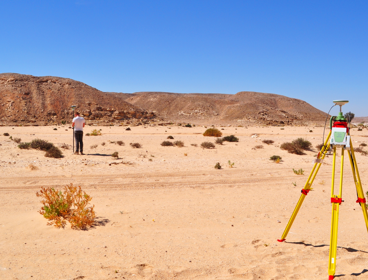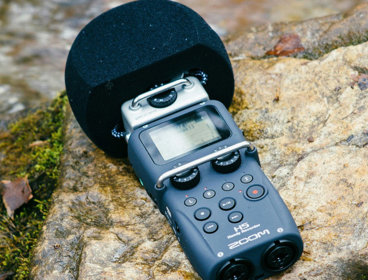Earlier this year, Chahrazade Douah, recipient of the Society’s 2023 Journey of a Lifetime Award, undertook a deeply personal journey to retrace the steps of her Algerian ancestors, exiled thousands of miles from their North African home to the Pacific Islands of New Caledonia. Chahrazade recorded her journey for a BBC Radio 4 documentary to be broadcast today.
We caught up with Chahrazade to hear about her unique journey.
Can you describe your journey?
My journey took me from the mountains of Kali, a region on the eastern coast of Algeria, all the way to New Caledonia, an island in the Pacific 11,000 miles away from where I started my journey. The idea was to follow the footsteps of people who my grandmother told me about, people who were exiled because they revolted against French colonial rule at the end of the 19th century and had to start over very far away from home.
What was your main motivation for going on this journey?
My main motivation was to understand how people who live so far away from you, who you’ve never met, can play such a big role in your upbringing. I grew up with stories of exile and I was told that these people mattered to us and they serve a very special role for the Algerian people as a whole. A lot of Algerians heard stories of exile as a way for the family to deflect away from their own pain and trauma around what happened during colonial rule and the war of independence.
How did you approach planning?
The most important part was to find the people, both in Algeria and New Caledonia. People who had a direct link with exile, either an ancestor who was exiled or a story that was passed down to them. I had to play detective and I was lucky enough to find people on both sides of the world who welcomed me with open arms. In Algeria, if you walk around long enough, you will find someone who has a grandfather who was exiled somewhere.
Why is it important to share the story of those exiled from Algeria and their descendants?
I think it’s the most beautiful lesson, that caring about people you don’t know, finding them and creating deep bonds can give you a sense of belonging in a way that archival work alone can never give you. Another reason is because this story is about the complexity of history. I went to find people who, in a twist of history, became settlers when they started off as freedom fighters. We need to tell these stories of complexity and nuance in history and not fall into nostalgic traps.
What do you hope others will take away from your experience?
I hope people take one main lesson and that is go out and ask questions. If your grandmother doesn’t answer you, other people will in different ways. And listen, because other people’s answers might bring you more reassurance and more comfort than direct answers can ever bring you.
How did you find the experience of recording sound when traveling?
Trying to tell a story through sound at first felt challenging but then it puts you in another frame of mind and you switch off some senses. The emotion and the knot in the throat that you hear when people tell stories, you suddenly notice them more. It opened up new doors in my mind of how you should travel and how you make memories.
You can listen to Chahrazade’s broadcast on BBC Radio 4 on Monday 6 November at 8.00pm or repeated on Wednesday 8 November at 11.00am. You can also listen to the documentary on BBC Sounds any time after the first broadcast, along with past episodes.




